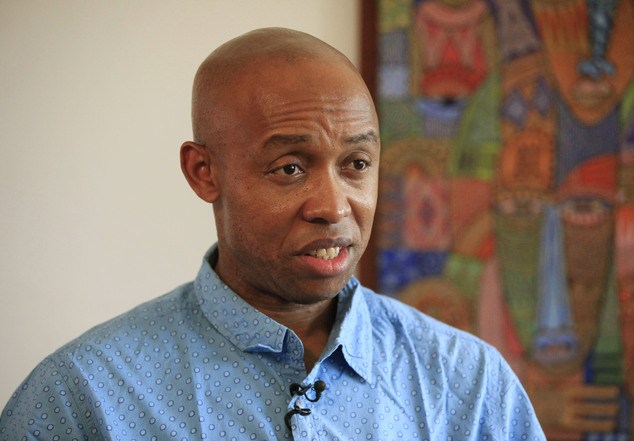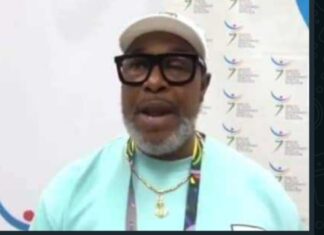In less than four weeks, on 28 September, 2022, the campaign season for the 2023 presidential election will begin. If Nigerians are not to fall into the same error as in 2015, when the electorate seemed hynoptised into choice without information, then in 2023, there has to be a concerted effort to get clarity concerning the positions of leading candidates on the issues that matter.
By Chidi Anselm Odinkalu
The mantra of candidate Muhammadu Buhari in the campaign that eventually took him to Nigeria’s presidency in 2015 was one word: “Change”. For a fact, it was not original. 32 years before 2015, in the 1983 presidential election, Dr. Nnamdi Azikiwe’s Nigeria Peoples Party (NPP) first deployed that slogan in their unsuccessful bid to make President Shagari a one-term president.
The moment then seemed ripe for that message. Under the watch of President Shagari’s National Party of Nigeria (NPN), a unique mixture of poor luck and official criminality conspired to bring Nigeria to its knees. The desire for change seemed very real but then the NPN did not plan to quit power and its opponents were too divided to offer any potent threat. So, Shehu Shagari managed to increase his share of the announced results from 36% in 1979 to 47.5% in 1983. Nnamdi Azikiwe, despite the resonance of his slogan, only ended up with 13.99%.
Muhammadu Buhari, then a Major-General in the Nigerian Army, decided thereafter to procure with the gun what the opposition could not with the ballot box: he ousted President Shagari in a military coup. Having taken power as a soldier from Shagari in 1983, Buhari went back to the future in 2015 to purloin the mantra of the NPP. It is doubtful whether Buhari knew in 2015 that his slogan was a genuflection before the altar of an “Igbo party”, which was how many people viewed the NPP.
To be fair, it was not only president Buhari’s All Progressives’ Congress (APC) that cannibalized the remains of the NPP in 2015. The NPP’s party slogan was “Power to the People” which the Peoples’ Democratic Party (PDP) had stolen at inception in 1998. So, going into the 2015 election, the two leading parties drew their inspiration from one source.
The real challenge in 2015 was one that is all-too-familiar in African politics: an anti-climax of fulfilled political expectations. The ruling party had been so long in power, it had no effective plan for transition into opposition and the opposition party had become so comfortable in that role it did not prepare for governance.
The electorate had to take considerable responsibility for this. People were so enamoured of the unproven powers of the Buhari magic, they decided not to bother with asking him to explain what kind of change he meant. It should have been evident to anyone who cared that “change”, is value neutral. It implies motion without necessarily promising movement or progress. It’s direction can be negative or positive. It has precisely the kind of laconic quality to empty it of any clear commitment. With the promise of “change”, candidate Buhari promised everything while simultaneously committing to nothing.
Four years later, when he ran for re-election, President Buhari reached back into precisely the same bag of trickery, promising “next level” without indicating “of what?”
READ ALSO: London: Nigerian axis of sexual escapades and political assassins
In less than four weeks, on 28 September, 2022, the campaign season for the 2023 presidential election will begin. If Nigerians are not to fall into the same error as in 2015, when the electorate seemed hynoptised into choice without information, then in 2023, there has to be a concerted effort to get clarity concerning the positions of leading candidates on the issues that matter.
It is a measure of the misadventure that has been the Buhari presidency that the two issues that arguably did more than any others to persuade Nigerians to his corner will not much bother most people in 2023. One is integrity and the other is corruption. On both issues, the Buhari presidency has been characterized by “a yawning gap” between rhetoric and reality, which has spawned a rich supply of choice epithets from “a fraud” to “dishonest integrity”. Many believers, shell shocked from the duplicities of this Buhari era, seem to have decided that they will not mind capable rogues who can get things done.
This is why as the campaign season begins, the voters need to put themselves in a position to identify the issues on which every serious candidate must show that they have done some contemplation.
One is coexistence. It has become cliched that Nigeria has not been this frayed since the end of the Civil War in 1970. The major reason for this is that President Buhari, in the memorable words of former military governor of Kaduna State, Col. Abubakar Umar, has profoundly “mis-managed Nigeria’s diversity.” As a testament to this, on the approach to the 40th anniversary, the landscape of the 2023 elections could potentially reprise the 1983 elections. There will be two major candidates from the south, one from the north, and an unending supply of dog whistle. It will be a brave candidate who campaigns boldly on a message of coexistence. But may be such is the kind of candidate that the country needs at this time. Every serious candidate needs to be pressed on this point.
Two, what is the value of a Nigerian life? By the most conservative counts (based on open sources), 5,797 persons in Nigeria have been killed in the first half of this year but the numbers do not do justice to the desperate straits in which the country finds itself. We have become used to the president neither acknowledging the human abattoir that the country has become under his watch, nor having any interest in empathy or fellow feeling. This indifference has set the country asunder when it should be coming together against the common threat of insecurity. Economic activity has been blighted and a nation-wide food security crisis could be imminent. In many cities, such as Kaduna in the north-west and Jos in the north-central, going from one part of the city to another could be a death sentence. Even the uniformed security services are struggling to protect themselves. Each serious presidential candidate must be prepared to show from the first hour of office what they propose to do to alleviate insecurity.
Three, how will the Commander-In-Chief optimize the security services? This is probably the most important job of a president. It is also the one that the present incumbent has proved most inept at. Under him, the federal government retrenched the police, transferring its responsibilities to the armed forces. When he addressed the cohort at the National Defense College in 2017, then Interior Minister, General Abdulrahman Dambazau, described the situation of the country as “military operations other than war, (MOOTW)” and proclaimed the doctrine that the armed forces are now “spearheading all internal security operations due to the fact that the Nigeria Police is no longer in position to handle such matters effectively.” As proof, today, the army is actively deployed in all 36 states of the Federation in 18 special, expeditionary theatres. What this means is that the army is too stretched to be effective against threats upon the homeland while the police is too demoralized to do its primary task of safeguarding law and order. Every serious candidate must have a plan to reverse this and make the security services fit for purpose.
Four, the economy will require attention in respect of both monetary and structural reforms. The president who will be inaugurated on 29 May 2023 will not have the luxury of a honeymoon. He’ll have to confront a disabling debt overhang, the removal of petroleum subsidy, a fiscal cliff, and a national currency in free-fall. Every serious presidential candidate must be pressed on his strategy for ending the calamity that is the current Governor of Nigeria’s Central Bank.
Five, to make progress on the above four issues, every serious candidate has to answer the question: are you prepared to serve only one term? This is not a matter of political convenience or deals. Rather, any president who desires to make progress on these must be prepared to confront committed blowback. If they are too in love with a second term, then the first term will be wasted. This indeed may be the defining issue of all.
Still on Bishop Kukah:
There were three errors in my piece of last week on Bishop Hassan Matthew Kukah. First, he is the Convener of the National Peace Committee, not the Secretary.
Second, Kevin Aje, who came from Kanke Local Government Area of Plateau State, was the first Nigerian Bishop of the Catholic Diocese of Sokoto. Kukah was the second.
Third, the Diocese of Sokoto does not cover Kaduna. In fact, Sokoto Diocese was under old Kaduna Diocese, and is currently under the Kaduna Ecclesiastical Province. The Diocese of Sokoto covers Katsina State, Zamfara State, Sokoto State and parts of Kebbi State (Jega, Kamba, Birnin Kebbi, Argungu). Zuru, Koko, Yauri, and some other parts of Kebbi state within those axis belong to Kontagora Diocese. My thanks to Fr. Chris Omotosho, Director, Social Communications, Catholic Diocese of Sokoto, for this.
- A lawyer and a teacher, Odinkalu can be reached at chidi.odinkalu@tufts.edu













